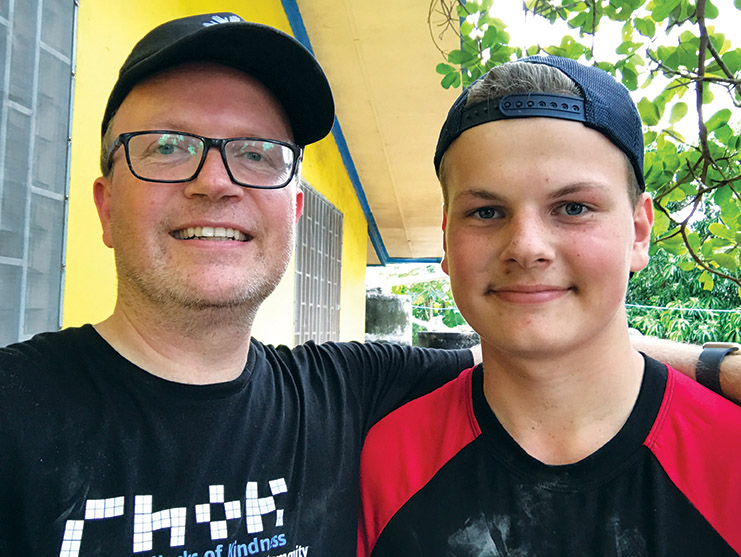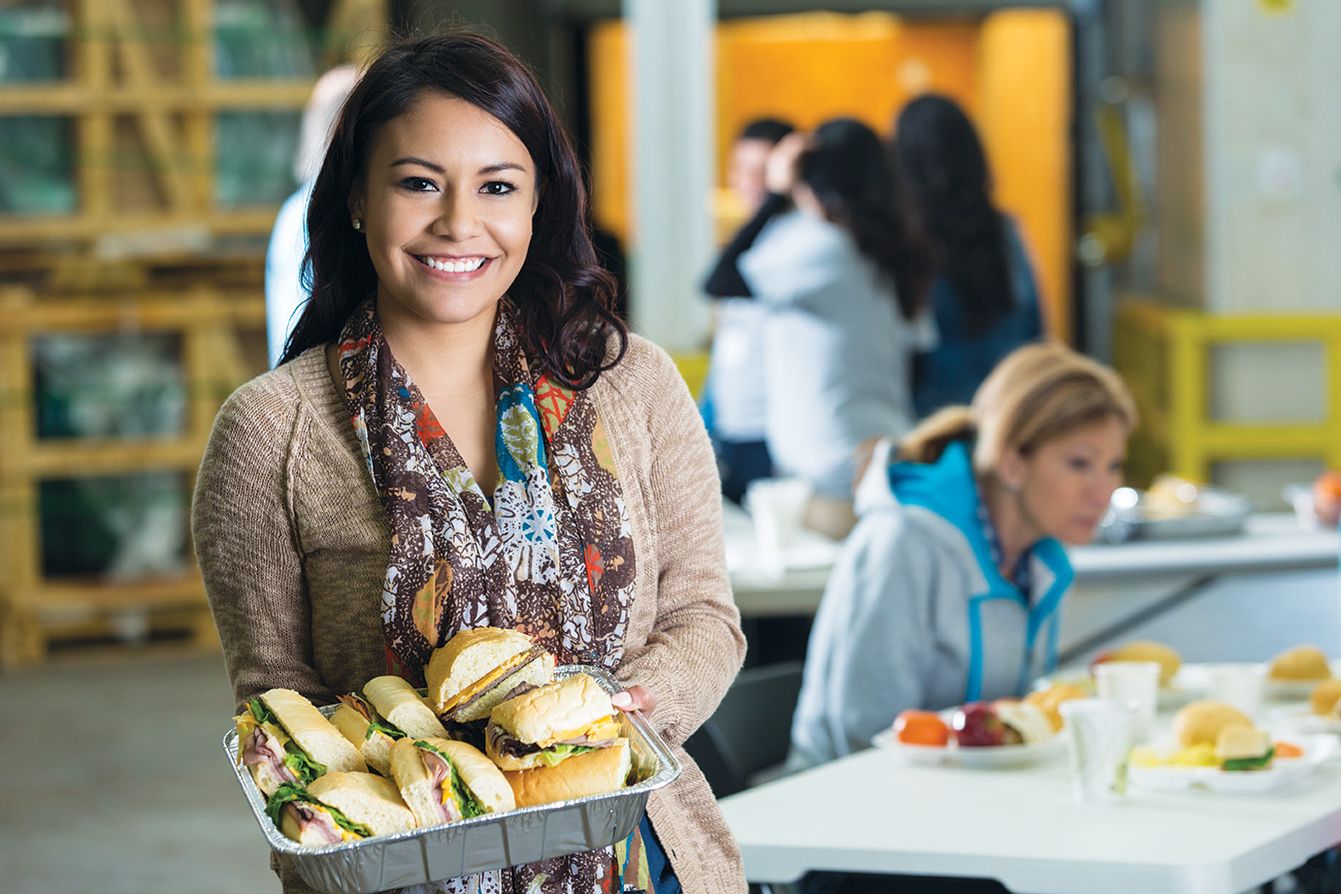Bringing your children to a centre for drug addicts might not be everyone’s idea of a great family activity, but for Elizabeth Yap, it was an opportunity for her daughters to be part of something worthwhile and special.
Elizabeth’s daughters were just seven and five when she took them on their first act of community service: volunteering at a drop-in centre in Cabramatta (New South Wales).
“Our job was twofold—to provide vast mountains of sandwiches and to befriend the people who came there,” says Elizabeth.
How volunteering benefits children
Research conducted by Volunteering Australia shows that people who volunteer are generally happier, healthier and sleep better than those who don’t. And yet, the same research reveals that the amount of time people dedicate to volunteering is decreasing dramatically because they are time-poor and cannot afford to make long-term commitments that take them away from family.
But why not combine the best of both worlds? Why not volunteer with your family?
“Volunteering is the perfect way for children to be welcomed as productive, active members of a community,” writes Gabina Torres in her paper, “The Future of Volunteering: Children Under the Age of 14 as Volunteers”. In it, she explores the benefits of exposing children to volunteer opportunities such as the opportunity to learn life skills and positive values. Gabina also suggests that children under the age of 14 are “an underutilised resource” and “a previously untapped source of ideas and inspiration”.
“It’s a great way to teach them the rewarding feeling of helping others,” says Shelley Phipps, a mum from western Sydney. She and her husband Gus have taken their young children Liam and Ciara on many volunteering opportunities, from Clean Up Australia Day to visiting the elderly at their local nursing home.
“Liam was 11 years old and Ciara was seven when we started volunteering with them. Honestly, we just wanted them to see how fortunate they were but it has taught them so much more, even though it has only been for a couple of years,” she adds.
“Funnily enough, I didn’t really notice until a few church members pointed it out to us. Our kids think of others—if they see someone alone, they invite them to join them; if everyone else is sitting on chairs and someone doesn’t have one, they’ll give up their chair for them. Even Ciara’s school teacher has picked up on her empathy.”
Now 12 and almost nine respectively, Liam and Ciara continue to show compassion and care for their fellow classmates.
“When someone is mean to them, they’ll try and find out what is wrong. Helping out at Hope Stayz (a retreat for disenfranchised women) taught them that it’s usually a person’s way of dealing with issues in their lives,” says Shelley.
“Of course it doesn’t mean they don’t feel hurt when someone is mean to them—there’ll be tears—but then they will try and talk to the other person and see if they can make them feel better.”
Volunteering and at-risk behaviours
Volunteering doesn’t only teach kids positive values. According to Gabina, children who volunteer and learn to serve others are less likely to become involved in at-risk behaviours later on.
A study conducted by the Search Institute, an organisation focused on discovering what kids need to succeed, examined the lives of 47,000 children in public schools from Years 5 to 12 across the United States. The results of this study indicated that children who volunteered for just one hour or more a week were less likely to be involved in at-risk behaviours than those who were not active in volunteering.
“I’m sure a lot of parents would be horrified at the idea of exposing small children to drug addicts,” Elizabeth says candidly as she reflects on the time her family spent volunteering at the drop-in centre. “I don’t agree. There’s a real world out there. It’s better to teach our children what it’s like than leave them fantasising about how awesome taking drugs must be.”
As it turns out, her girls were “great” at breaking down barriers between the adult volunteers offering help and the clients who were reluctant to accept handouts.
“Quite a few had lost two or three children to the care of Social Services and they would talk and cry about that. They told our girls to stay away from drugs because of the terrible mess their lives had become as a result.”
Elizabeth’s older daughter Arabella, now in her mid-twenties, still remembers meeting the addicts at the drop-in centre and the advice that they gave her.
“Even at a young age, this definitely had an impact on me,” she says. It influenced her discussion of drugs with peers during adolescence because she had concrete evidence of what drug use could do to someone’s life. Remembering how difficult life was for the addicts she met growing up, Arabella is still generous with people on the streets who ask her for money.
Meanwhile, Arabella’s younger sister, Abigail, has maintained a heart for giving back, continuing to volunteer for various church and community organisations as an adult. She has a particular passion for working with disadvantaged youth.
How volunteering benefits the parents
The thing is, volunteering with the family can be just as beneficial for the parents as well as the kids. Research conducted by Lifeline shows that eight in 10 Australians believe loneliness is increasing in society. Interestingly enough, it wasn’t just single people who felt that way: 60 per cent of these Australians were couples and almost 45 per cent were currently living with a spouse or a partner.
Around the same time that this research was released, a study by suicide prevention organisation R U OK discovered Australians spent an average of 46 hours a week looking at various screens outside of work hours, from smartphones to televisions.
It’s probably safe to say that as we get “busier” with technology, we are simultaneously becoming lonelier. Volunteering provides parents with an opportunity to get themselves and their kids away from their screens and spend quality time together as a family, while simultaneously doing something good for the community.
“We are very privileged in Australia, but we still stress about work and finance,” says Andrew Perry, a dad from the Hills region in Sydney. “We also spend a lot of time on electronic devices that can distract us from the really important things going on in our homes and communities.”
When his son Declan turned 13, Andrew decided to take him to Cambodia to volunteer at a local children’s village through a service trip run by international development organisation, International Children’s Care Australia.

“Going to Cambodia was an opportunity to share time with my son and help him realise that happiness doesn’t come from the things that we have. It comes from the relationships we have with each other and God,” says Andrew.
He believes that giving his kids the opportunities to volunteer has helped empower them.
“Their confidence has grown by learning that most people are friendly or at least willing to help, and that we can actually do something to help people in tough times,” says Andrew.
“It also helps you think about personal responsibility, whether it’s to care for our environment or be more careful with how we spend our money, so that we can help others. As for adults, it can help us have a more playful attitude when dealing with challenges, through the example of our children and the children in poor communities. You can choose to be happy and grateful with very little, and always take time to play!”
Andrew thinks all parents should take advantage of opportunities to volunteer with their children. “Do it,” he encourages. “Helping others and meeting new people is one of the most rewarding and empowering things you can do. Start with something small that will take a few hours, and then spend some time with your kid talking about your favourite parts over a snack or a meal. The most important thing you can do is to help your child know that they belong to a community and have something to contribute to that community, and can help other people feel the same way.”
“Serving together as a family is the most amazing experience,” agrees Shelley. “However, do talk to your kids about what you will be doing and what is expected of them, especially if there are other kids involved.”
Practical opportunities to volunteer
“Events like Clean Up Australia Day are a great opportunity to join a local team and spend a few hours to make a noticeable improvement.” —Andrew
“Visit retirement homes. There are a lot of lonely people who love the company. Visit neighbours or friends you know are sick, and take them a meal you’ve made with your kids. Door knock to collect tinned food for charitable organisations such as the Adventist Development and Relief Agency or Anglicare.” —Shelley
“An overseas mission trip to a developing country where kids can explore and make friends with local children.” —Elizabeth
How helpful was this article?
Click on a star to rate it!
5 / 5. 1
Be the first to rate this post!
Related posts
Subscribe
Receive personalised articles from experts and wellness inspiration weekly!

